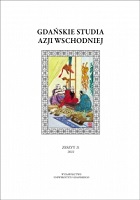FORMA PISEMNA I ELEKTRONICZNA UMÓW W PRAWIE SINGAPURSKIM
WRITTEN AND ELECTRONIC FORM OF CONTRACTS IN SINGAPORE LAW
Author(s): Maja Maciejewska-SzałasSubject(s): Law on Economics, ICT Information and Communications Technologies, Commercial Law
Published by: Wydawnictwo Uniwersytetu Jagiellońskiego
Keywords: Singapore; law; contracts; form;
Summary/Abstract: The article presents the complicated issues of concluding a contract in written and in electronic form, as well as meeting the requirements of the writing and signature by electronic record and electronic signature, respectively, in Singapore law. Singapore is an Asian pioneer in regulating e-commerce. Electronic Transactions Act (2010) is modern in nature, based on the principle of the functional equivalence of writing and electronic record as well as signature and electronic signature, and the principle of non-discrimination of messages and contracts in electronic form. Under Singapore law, “writing” includes print, typescript and other ways of presenting words in a visible form, while “signature” is any sign submitted by a signatory with the intention of signing and authenticating a document. The formal requirements for the writing and signature are minimal, the indicated terms have a very broad meaning, and the written form of the contracts has been regulated very liberally. As a consequence, Singaporean courts applied a liberal and, at the same time, functional approach in deciding whether the signature requirement was met by various types of electronic signatures and found that it was satisfied with, inter alia, keyboard electronic signature, i.e. the name written under the text of the declaration of will in the e-mail or SMS, and even the name that is part of the sender’s e-mail address, appearing in the header of the e-mail received by the recipient of the message.
Journal: Gdańskie Studia Azji Wschodniej
- Issue Year: 2022
- Issue No: 21
- Page Range: 163-179
- Page Count: 17
- Language: Polish

